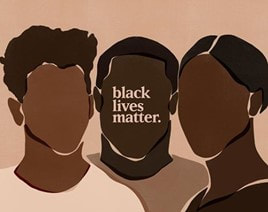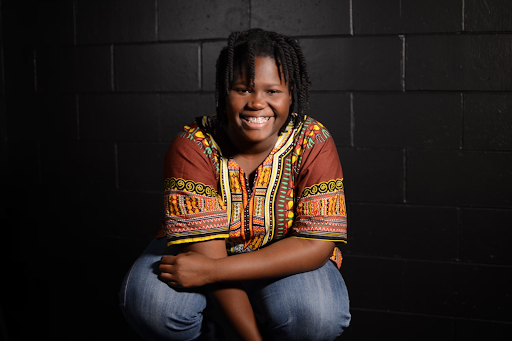|
By Tariro Hlahla, Carleton Neuroscience Student  “Regardless of ethnic background, there is no denying the universal black experience,” writes Health Sciences student Wiza Mkandawire. “This time is paramount to refuel and rejuvenate ourselves, reminding ourselves why exactly it is all worth it.” Similar notions were mirrored in other comments from students - Black History Month is a time to celebrate black people’s achievements. These achievements are nothing short of exceptional, not only historically but in modern times. From the monumental creations in science like the invention of the blood bank by Charles R. Drew to the immense contributions to art and pop culture such as the 2022 Super Bowl Halftime Show being composed primarily of Black music legends like Mary J. Blige and Kendrick Lamar, it’s clear that many Black people have been and continue to be front and centre on the world stage. Yet the Black community continues to face turmoil and oppression. Besides the 2020 George Floyd protests that come to mind, Black people suffer relentless setbacks in almost every aspect of their lives: concrete ceilings and glass cliffs, the harmful stereotype of the diversity hire, the cruel judgement of Black skin colour and hair texture, and so much more. One thing that direly needs to be addressed is supporting Black communities throughout their educational journey, including during their postsecondary education. “[Being a black student] can also feel like being in a very violent struggle, especially when endeavouring to be at the forefront of university leadership and politics,” says Public Affairs and Policy Management student Nikayda Harris. “Having to fight for equal access and representation in residence, in our programs, in the literature and academic works we are exposed to and for our mental health, especially when considering the various traumas that we have faced and have inherited can be tormenting.” According to StatsCan, Black people make up 3.5% of the Canadian population. This means that from a young age, most Black children may not be able to find many Black peers. “I moved from Jamaica to Canada when I was eight years old, and that was already a difficult experience for me in terms of fitting in, as I had a strong accent and I looked and dressed differently,” writes Criminology student Zana Palomino. This sense of alienation can continue far into their academic careers. Just 2 years ago, scandal broke loose when a professor at a prominent Ottawa university used a racial slur that is considered extremely derogatory to Black people and was supported by several of their colleagues. Furthermore, stories have emerged about Canadian Black students being assaulted by police and campus security as a result of racial profiling. Black History Month celebrations within universities mean nothing without acknowledging the cracks in the system. When an entire group of people are not being uplifted by their peers, professors, or protectors, they are being set up for failure. This problem transcends university and spills out into other facets of these students' lives; for example, a Black individual will make on average $12,000 less than their white counterpart. This is an enormous discrepancy in a time when housing is at its least affordable and food prices continue to climb. Despite the copious numbers of setbacks, we have observed something magical begin to form: resilience. According to StatsCan, 44% of Black people believe they have the ability to bounce back from difficult periods in life as opposed to 33% reported in the rest of the population; we also see that almost two thirds of the Black population believe they always learn something from an aversive experience, whereas less than half of the rest of the population endorse this belief. Resilience is a key theme when you ask students about what Black History Month means to them. “[Black History Month to me is] people’s stories and experiences of how they overcame hardships and how they were able to implement change,” comments Biology student Nana Owusu. “Our ancestors have paved the way for us with their sacrifice, strength, courage, and authenticity.” says Health Sciences student Rougayyah Jalloh. Regardless of the struggles that these students must face, they are determined not only to weather the storm, but to come out of the other side stronger than ever. There is certainly much to learn from the Black students who will be among our future doctors, educators, policy makers and more. Resilience is instilled into every Black child from the time they are born to the time they make their way into the world. What non-Black communities must do in order to truly make a difference is to start listening to what Black people have to say. It’s not about creating your own ideas of what Black people need, it’s bringing Black folks into spaces where they can voice their concerns and feel comfortable articulating their unique life experiences. “[Black History Month is] a time to educate oneself on the rich history and is a call to action to continue to advocate for and uplift those within society who are often pushed to the sides,” Psychology student Ashley Igboanugo states. In a world where Black achievements are pushed to the side, stolen by others, downplayed and disregarded, we must take the first step to equity by giving minorities a platform to voice their opinions freely. We need to abolish the stereotypes of the angry ghetto black woman and the aggressive hypermasculine black man and start embracing every facet of Black humanity as it is: colourful, unique, diverse within itself and worthy of consideration. In the month of February, we ought to take time to reflect on the mistakes made and the deep flaws in our society while also rejoicing on the progress we have made. As student Nikayda eloquently states: “If we don’t uplift and honour ourselves and our ancestors, our souls die violent deaths. So until we can reach this promised land of milk, honey and abundant black joy, we take February and we love, we hope, and we remember.”
0 Comments
Your comment will be posted after it is approved.
Leave a Reply. |
Archives
March 2023
Categories
All
|








 RSS Feed
RSS Feed